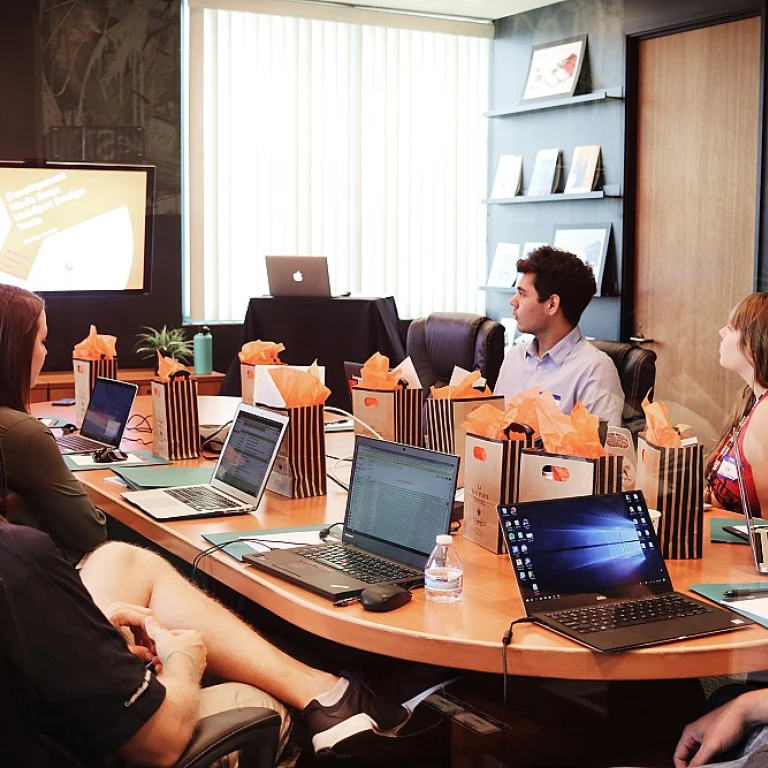
The Core Duties of a Front Office Manager
Essential Functions within the Front Office Division
The front office manager plays an integral role in ensuring smooth operations at the hotel, making it crucial for them to handle a variety of tasks effectively. One of the manager's primary responsibilities is overseeing the front desk operations. This involves ensuring the desk staff is efficiently managing guest arrivals and departures, a process central to customer service. A well-managed front desk is key to guest satisfaction, and this requires a manager who is attentive and proficient in problem solving. Another core duty involves coordination with other internal teams to maintain seamless operations across the hotel's many departments. This includes collaboration with housekeeping, maintenance, and banquet services, underpinning the manager's role as a central hub of hotel operations. The responsibilities in this area demonstrate the significance of strong leadership skills and a profound understanding of hotel management. Moreover, office managers are tasked with creating comprehensive job descriptions that clearly outline duties and responsibilities for front desk employees. This clarity is crucial in establishing performance expectations and promoting consistent service delivery. Crafting precise job descriptions is a reflection of the office manager's detailed and organized management approach. Recruiting and training desk staff also fall under the remit of the manager, ensuring new hires are well-equipped with the necessary skills to excel in their roles. This ties into providing ongoing development initiatives for staff, which is an important aspect covered in section 3. To explore further how essential functions within the front office can lead to promising career opportunities, consider exploring career opportunities at Hope Church for insights into broadening professional horizons.Impact of Leadership on Employee Retention
Leadership's Influence on Employee Retention
In the realm of front office management within a hotel setting, leadership plays a pivotal role in employee retention. A manager adept at the art of leading their desk staff contributes significantly not only to their team's satisfaction but also to the overarching success of hotel operations. Creating a strong foundation of leadership involves several core elements:- Emphasizing Clear Communication: Effective managers prioritize transparent communication, ensuring that every office manager and front desk staff member understands their job responsibilities clearly. This clarity helps prevent misunderstandings and fosters a collaborative work environment where all team members feel valued.
- Fostering Trust and Accountability: Leaders who trust their staff and emphasize accountability create a positive workplace culture. In roles dealing with guest services, a reliable team is essential for maintaining high customer service standards.
- Providing Support and Mentorship: By developing strong relationships and acting as mentors, managers can guide desk staff through challenges, helping them enhance their skills front and develop professionally. This kind of support not only benefits the individual but also contributes to overall guest satisfaction and organizational success.
Training and Development Initiatives
Enhancing Job Performance through Comprehensive Training
One of the pivotal responsibilities for a front office manager is to foster an environment where training and development are prioritized. This is not only essential for delivering exceptional customer service but also crucial for improving the retention of desk staff. By equipping employees with the necessary skills and knowledge, front office operations can run smoother, and guest experience is significantly enhanced. Investing in robust training programs helps office managers maintain a competent and confident team. A well-structured training session should cover job descriptions, desk operations, customer service techniques, and conflict resolution skills. With a focus on these areas, staff members are better prepared to handle their duties responsibly and efficiently. Moreover, training initiatives should be ongoing. This continuous form of education ensures that employees are kept up-to-date with the latest best practices and trends in the hospitality industry. It also provides an avenue for front office managers to implement strong leadership skills, by mentoring and guiding their teams through these learning processes. To ensure that training translates into skill enhancement and retention, managers must establish clear goals and metrics for measuring success. Monitoring employee progress not only helps in identifying gaps that need addressing but also assists in recognizing and rewarding outstanding performers. This practice fosters a sense of achievement and belonging, further boosting retention rates. Effective communication between the manager and team is another critical element, as it supports the adoption of new skills and responsibilities. By encouraging open dialogue, front office managers can better understand the needs and concerns of their staff, thus tailoring the training to fit the unique requirements of their workplace environment.Creating a Positive Work Environment
Fostering a Supportive Workplace Culture
A thriving front office manager pays attention to crafting a workplace culture that fosters support among employees, contributing significantly to employee retention. Ensuring a positive work environment boosts morale and leads to increased productivity and satisfaction among both guests and desk staff. Communication is key in creating a welcoming work atmosphere. Office managers are responsible for maintaining open lines of communication, allowing staff to freely express concerns and suggest improvements. This approach not only strengthens the bond within the team but also results in better problem-solving and customer service. Recognizing and celebrating achievements plays an essential role in promoting a positive atmosphere. By acknowledging the efforts and successes of the front desk team, a manager can enhance worker motivation and job satisfaction. This acknowledgment of skills and dedication aligns with the core duties, ensuring that staff feel valued in their roles. Furthermore, having a clear job description and responsibilities for each team member helps maintain clarity and structure within the office. A well-defined description template aids the manager to align operations smoothly and ensures everyone understands their roles and responsibilities. This clarity contributes to a sense of purpose and belonging, which in turn influences retention positively. Lastly, addressing employee concerns efficiently and fairly helps prevent potential conflicts from escalating, maintaining the overall harmony of the workplace. A front office manager with strong leadership qualities is pivotal in navigating these dynamics, setting an example for professionalism and courtesy in all interactions. By honing these management skills, they help nurture an environment where employees feel respected and motivated to stay.Handling Conflict and Employee Concerns
Addressing Workplace Challenges with Poise
One of the most essential skills for a front office manager is the ability to handle conflict and employee concerns effectively. Playing a pivotal role in maintaining harmony in the workplace, the manager's job description involves being the first point of contact for staff and guest issues. This requires a keen understanding of office dynamics and strong leadership abilities.
A manager responsible for the front office operations must always be prepared to tackle challenges that arise at the front desk. Whether addressing guest satisfaction issues or resolving disputes among desk staff, it’s critical to approach each situation with tact and professionalism.
Fostering Open Communication
To effectively manage conflicts and concerns, open communication is key. Encouraging an environment where staff feel comfortable voicing their problems is crucial. This transparency can help prevent minor issues from escalating, ensuring that the front office and guest experiences remain unaffected.
Adopting a proactive approach allows managers to identify potential pitfalls before they become significant obstacles. This means scheduling regular team meetings or check-ins, providing constructive feedback, and ensuring the team is aware of the support available to them.
Implementing Effective Problem-Solving Techniques
Problem-solving is an integral part of the manager's duties and responsibilities. Given the varied nature of the desk operations, it is important for office managers to use structured approaches like the SARA (Situational Awareness, Assessment, Response, and Adjustment) model. This ensures all aspects of an issue are considered, leading to more comprehensive and effective solutions.
By creating a more supportive work environment through effective conflict resolution and employee engagement strategies, managers can help boost overall team morale. These efforts, tied in with the training and development initiatives highlighted in other sections of this article, aim to solidify not just job satisfaction but also commitment to the organization.
Measuring Success in Employee Retention
Assessing the Success in Retaining Staff
Measuring success in employee retention can seem like a daunting task; however, clear indicators can help determine the effectiveness of a front office manager's ability to retain valuable staff members. Success in this area hinges largely on various factors implemented in blended measures, balancing qualitative and quantitative data.- Turnover Rates: A primary quantifiable indicator is the turnover rate within the front desk team. By analyzing the frequency of hires and departures, managers responsible for the front office can determine the effectiveness of their retention strategies.
- Employee Satisfaction Surveys: Regular feedback is crucial. Surveys can paint a picture of the desk staff's job satisfaction level, how they perceive the service environment, and whether they feel supported in their roles, reflecting on their overall experience.
- Guest Feedback: The guest experience can also indirectly reflect staff morale and effectiveness. High guest satisfaction scores often correlate with skilled and motivated staff, suggesting that strong leadership from the office manager is playing a part.
- Training Completion Rates: As discussed in previous sections, training and development are key to retention. Tracking participation in training initiatives can highlight whether employees have the skills and tools they need for success, thus impacting their decision to stay.
- Resolution of Employee Concerns: How conflict and staff issues are managed will also affect retention. Successful conflict resolution, as practiced by strong managers, contributes to a positive work environment, encouraging employees to remain at the hotel.













